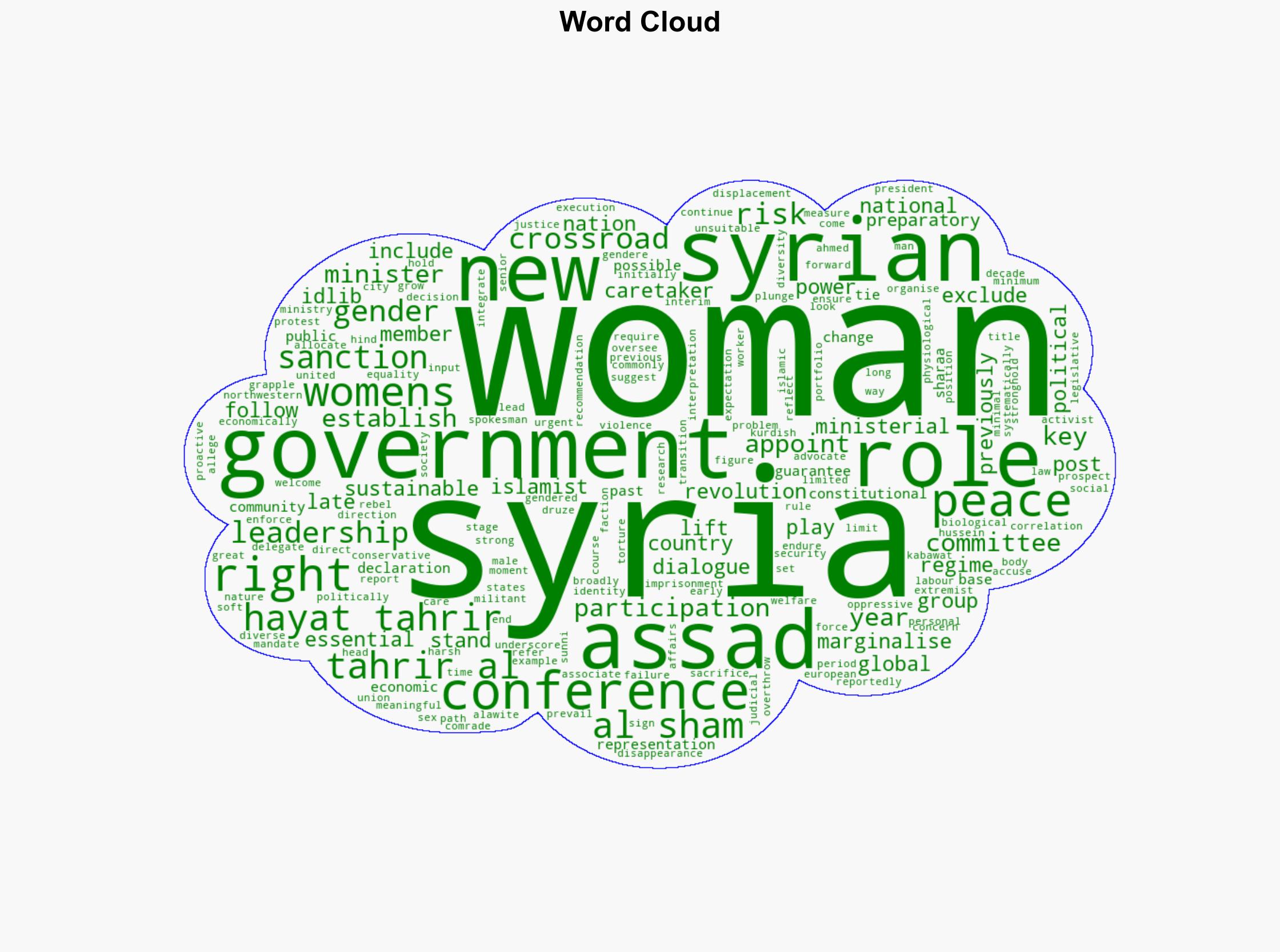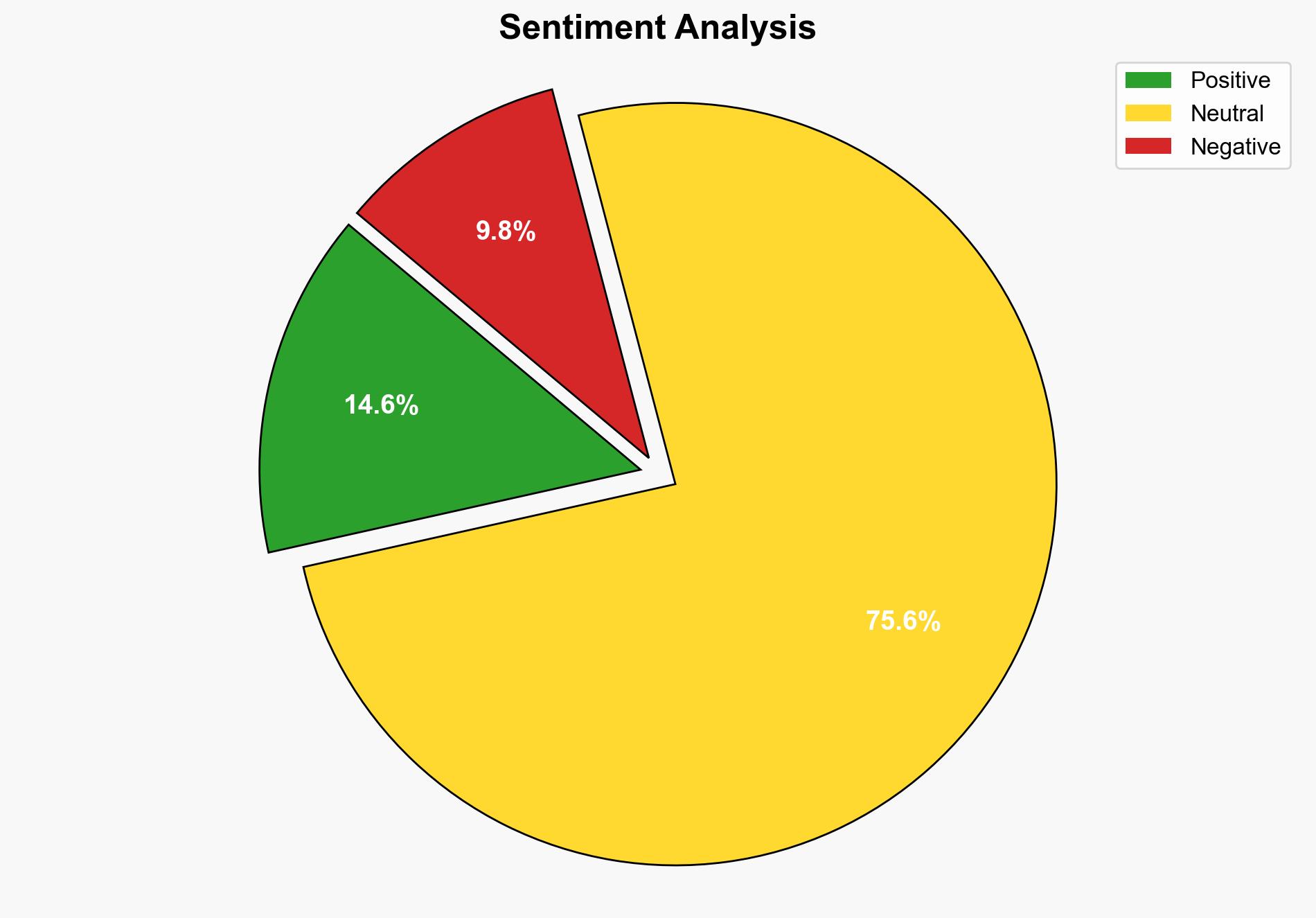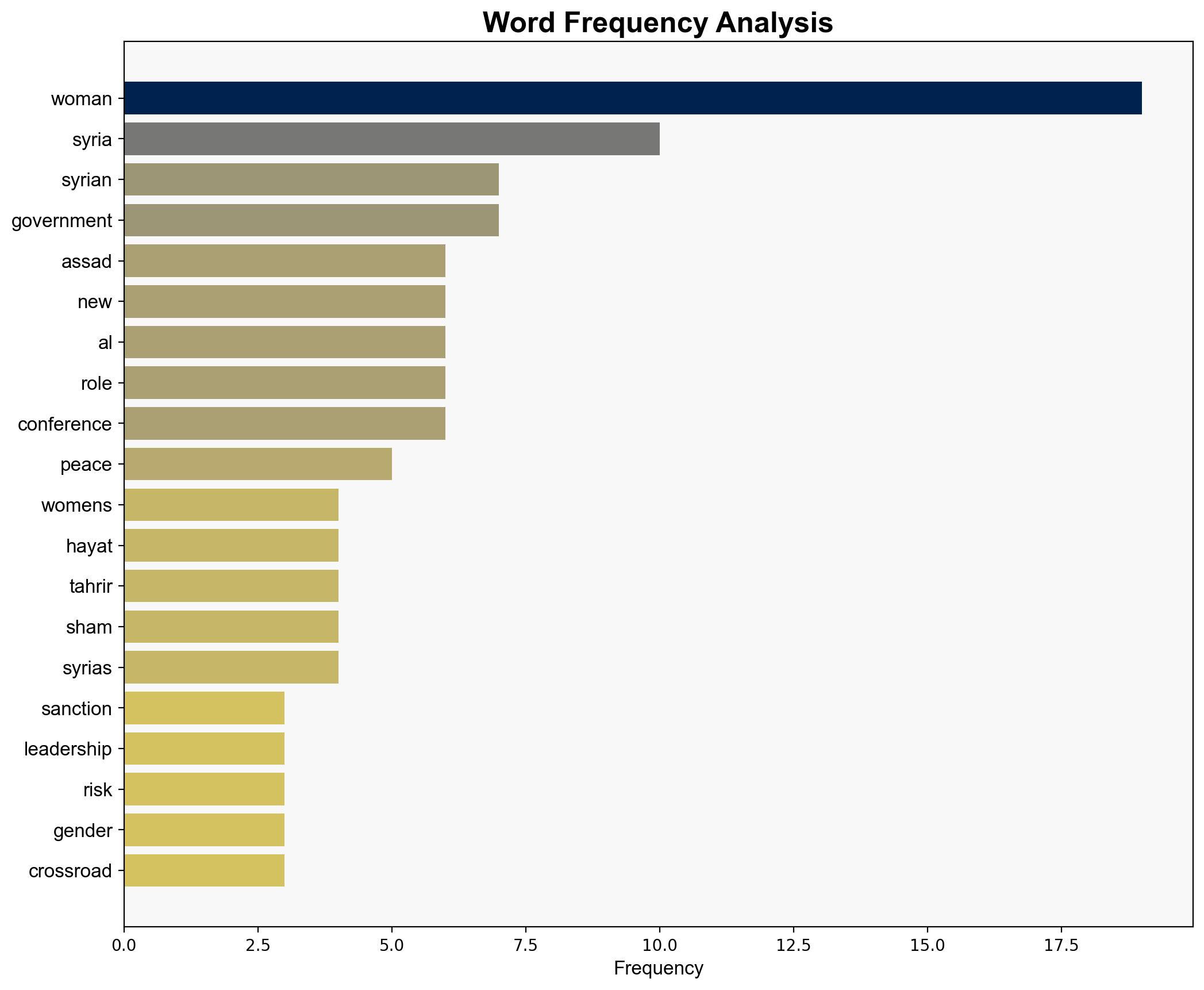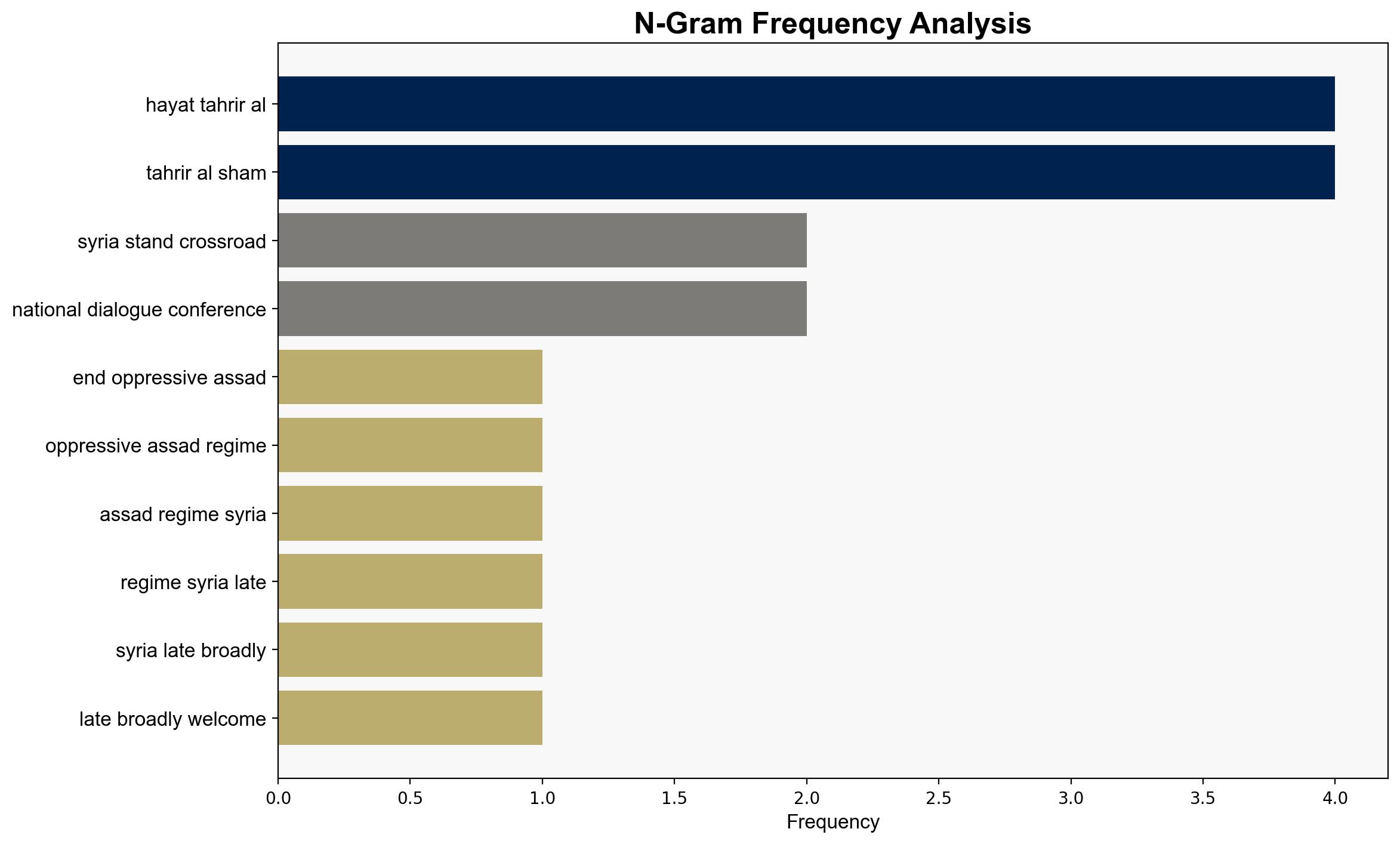Women played key roles in Syrias revolution Now theyve been pushed to the margins – The Conversation Africa
Published on: 2025-07-14
Intelligence Report: Women played key roles in Syria’s revolution Now they’ve been pushed to the margins – The Conversation Africa
1. BLUF (Bottom Line Up Front)
The exclusion of women from Syria’s political landscape post-revolution poses significant risks to sustainable peace and stability. Despite their crucial roles in the revolution, women face systemic marginalization under the new leadership. Addressing gender inequality is essential to prevent further extremist violence and ensure long-term peace.
2. Detailed Analysis
The following structured analytic techniques have been applied to ensure methodological consistency:
Causal Layered Analysis (CLA)
– **Surface Events**: Women played pivotal roles in the Syrian revolution but are now sidelined in political processes.
– **Systemic Structures**: The new government, influenced by conservative factions, systematically excludes women from decision-making roles.
– **Worldviews**: Prevailing patriarchal norms and conservative interpretations of Islamic law limit women’s participation.
– **Myths**: The belief that women are unsuitable for leadership roles persists, undermining gender equality efforts.
Cross-Impact Simulation
– Exclusion of women may lead to increased instability and violence, impacting regional security and economic conditions.
– Neighboring countries could experience spillover effects, exacerbating refugee crises and regional tensions.
Scenario Generation
– **Best Case**: Implementation of gender-inclusive policies leads to improved stability and peace.
– **Worst Case**: Continued marginalization of women results in heightened extremist activities and prolonged conflict.
– **Most Likely**: Partial reforms are implemented, with limited impact on women’s roles in governance.
3. Implications and Strategic Risks
The marginalization of women in Syria poses a strategic risk to regional stability. It may lead to increased extremist recruitment and undermine peace efforts. The lack of women’s participation in governance could perpetuate systemic vulnerabilities, affecting political and economic dimensions.
4. Recommendations and Outlook
- Encourage international pressure to integrate women into Syria’s political processes.
- Support initiatives that promote women’s economic empowerment and leadership roles.
- Monitor developments for signs of increased extremist activities due to gender exclusion.
- Scenario-based projections suggest that gender-inclusive policies could significantly enhance peace prospects.
5. Key Individuals and Entities
– Ahmed Hussein al-Sharaa
– Hind Kabawat
6. Thematic Tags
national security threats, gender equality, regional stability, counter-terrorism




